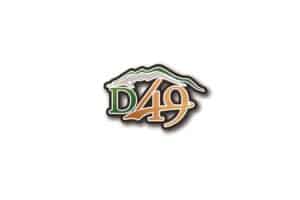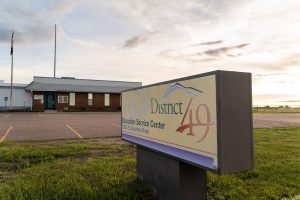From 1999 to 2003, the number of students home-schooled in the United States increased from about 850,000 students to 1.1 million in kindergarten through 12th grade. The National Center for Education Statistics’ report was taken from the first and most recent survey completed nationwide.If the burgeoning programs for parents or guardians home schooling their children is an indicator, the NCES 2003 figures have more than likely soared in the past four years.Online and pre-packaged curriculums and school district-sponsored enrichment centers offer a myriad of choices to those who prefer to teach their children in the home setting. “There’s flexibility in the law as to what parents can use to teach,” said Kerry Kantor, director of the Colorado Academy of Independent Learners, a private, independent school that offers academic curriculums, record keeping and accreditation information and general support to home school families.”They can build their own curriculum … there are so many places to buy programs and textbooks. Things have really changed over the last 20 years.”In the 1980s, families that home schooled their kids were from the “evangelical Christian movement, or they were hippies or people living in the mountains,” Kantor said.Today, people home school for many reasons.Kantor home schooled her son and daughter because she wanted to provide them with the best education possible, avoiding her own experience. “I didn’t learn ‘diddly squat’ in high school,” Kantor said. “I barely came out reading.” She said her husband read many stories to her daughter, who learned to read at age 4. Everything from that point fell into place for a home school setting, Kantor added.What Kantor and other parents of her era didn’t have is the level of support available today. Although Kantor’s children are in college, she has become part of the home schooling support system. Peyton School District 23 contracted Kantor to create and establish an enrichment center for the district for 2007-2008. Dubbed the Eastern Plains Home School Enrichment Center, the center is in its final stages, gathering home school families interested in a support program.Enrichment centers provide a “brick and mortar” class setting one day a week. The curriculum varies, from language arts to science and math to drama, depending on the needs and desires of the families, Kantor said.The district has hosted public meetings and an open house and sent surveys to families. “We work closely with parents, and we try to give them exactly what they want,” she said. “We also encourage highly qualified parents to teach a course.” Parents or guardians can drop off their children to the center for the day or stay and observe or help.The D 23 enrichment center will be held in two classrooms in the school building on Fridays, when the public school system is closed. Kids will have access to a computer lab and a gymnasium as well. And it’s all free for home school families.State funds support most enrichment centers, Kantor said. To qualify for the funds, the center must be staffed with a licensed teacher, and students must commit to attend 90 hours a semester – about six hours a week, she said. “We need at least 10 students to get the program off the ground.”Aug. 17 is the date the center is scheduled to open.D 23 is getting on board with other districts that already have enrichment centers.School District 11 was the first to open a center for home school families, Kantor said. She ran the program for two years, preceding the current director, Kim Hennessey.Hennessey said the enrichment center is one of a few programs under D 11 HESP – Home Education Support Program. The center is in its ninth year.The progression of home schooling in this country can be measured by the number of resources available, Hennessey said.About 100 kids – kindergarten through eighth grade – are enrolled in the enrichment center, she said. “We keep our class sizes to no more than 16 students.” Funding received from the state covers four teacher salaries and supplies.The center – a wing at Audobon Elementary School – is open from 9 a.m. to 3 p.m. Wednesday, Thursday and Friday. Parents are welcome to visit and volunteer. Like D 23, the curriculum is designed around the families. Hennessey said D 11 offers language arts, art, science, social studies and a choice of Spanish or music (vocal).Hennessey home schooled her daughter, a competitive figure skater. Her training schedule required an alternative to traditional schools. Hennessey said D 11 supports many home school students involved with the Olympic Training Center.One word that is often used to negate home schooling is “socialization.” Kantor calls it the “S word.””Public educators fear we are not socializing our children,” Kantor said. But both Kantor and Hennessey agreed there are plentiful opportunities for socialization, especially now that enrichment centers are on the rise. Home school students are often involved in sports activities, 4-H clubs and Boy Scouts and Girl Scouts, Hennessey said.Many kids are home schooled through elementary school and end up in a public or private high school, Kantor said.However, public schools are often overcrowded, and home schooling is one way of mitigating the problems associated with larger class sizes.School District 49 is one of the fastest growing school districts in the state. Enter the charter schools to relieve some of the pressure. One charter school in D 49 also is home to an enrichment center for home schooled students.Carla Witmer, home school director at Rocky Mountain Classical Academy, doesn’t refer to the D 49 center as an enrichment center.”Some programs are just more fluffy and fun,” Witmer said. The program curriculum at RMCA is available to grades one through seven and includes “hands-on science, critical thinking, language arts, mathematical reasoning, Spanish and Latin, art, music and physical education,” she said. And special projects. “Last year, the higher grades were divided into teams, and they formed corporations and made products and sold them,” Witmer said.Like the other programs, RMCA provides support to home school families by loaning curriculums and books and other materials. Unlike other enrichment centers, home school kids attending RMCA’s center once a week must wear uniforms. The costs to parents are uniforms and a book deposit. The RMCA program also is supported by the state. Witmer said two Colorado certified teachers and one “highly qualified” teacher are available at the center, which is open to home school families three days a week. “We just added a third day this year,” she said.Thirty students were enrolled last year, and Witmer said the number has doubled so far this year.The home school community is tightly knit. Witmer also home schooled her children, and she was the first director of the D 11 enrichment center. “I started the program,” she said. Kantor succeeded her.All three women said home schooling is about commitment and sacrifice. And, as support programs like enrichment centers, increase; home schooling will become more mainstream.For information on all programs, call the individual school districts.






